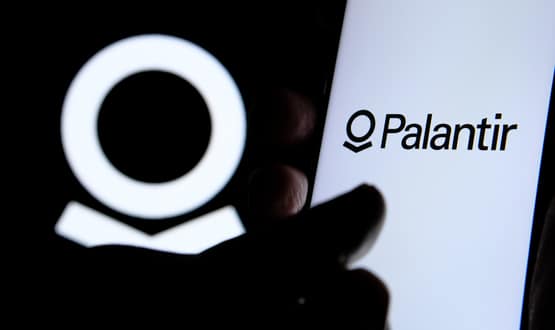Palantir’s road to the Federated Data Platform contract: a timeline
- 21 November 2023

NHSE’s procurement for the Federated Data Platform and award of a £330m contract is story that has stretched over more than three years, to the start of the Covid-19 pandemic, during which time Palantir has become the government’s preferred data partner.
The story began in March 2020 at the start of the pandemic, when Palantir initially offered its services for £1 to NHS policymakers during the pandemic, providing its Foundry data analytics software to help plan and respond to the Covid-19 pandemic, in areas such as PPE and vaccines.
In July 2020, Palantir then won a new contract estimated at £1 million, which was further extended to a £23 million, two-year deal in December 2020.
In 2021, transparency advocacy group OpenDemocracy, with the help of legal firm Foxglove, took legal action sued the health service over its contract with Palantir, arguing that the December 2020 two-year contract exceeded help with Covid, extending to “to Brexit, general business planning and much more” and therefore required a fresh Data Protection Impact Assessment.
The organisation also alleged that in July 2019, Palantir’s then UK head hosted Lord David Prior, chair of NHS England the night before the launch of the new NHS technology division, NHSX, the BBC reported.
By late 2022, shortly before the commencement of the tender for FDP in January 2023, NHS trust sources told Digital Health News that they were being strongly encouraged by NHS England officials to adopt Palantir’s Foundry data platform for other pilot projects.
Palantir had, consequently, long been seen to hold a clear advantage in the tender process. The government’s decision to award the £25 million “transition” contract to the US company in June merely deepened the air of inevitability.
During the procurement period alone, the proposed investment in the prospective FDP doubled from £240 million in April 2021, when it was first launched, to £480 million. Over that time period, the government has failed to dampen the controversy surrounding the procurement or its leading bidder, Palantir.
We look at the timeline of events during the procurement process and the major issues relating to the platform.
Evolution of FDP Tender
- January 2023 – After the price tag has ballooned to twice original estimates, the NHSE opens the tender for the FDP in January 2023, estimating the contract to be worth £360 million for five years, with an option for two 12-month extensions worth £120 million.
- April – a UK consortium bidding to run the FDP says it has been unsuccessful. Shane Tickell, the chief executive and founder of one of the consortium members, Voror Health Technologies, confirmed to Digital Health that Voror had joined forces with database company Eclipse and software provider Black Pear to challenge Palantir and others for the contract to manage the proposed FDP.
- June – NHS England (NHSE) awards a new 12-month contract worth £25 million to Palantir to “transition” its current projects with the health service to the new FDP supplier. The award of the contract renews concerns about Palantir’s advantageous position, although the NHSE says the interim contract is meant to avoid a “gap in service provision and support the smooth transition from one platform to another.”
- August – National Data Guardian Nicola Byrne warns the government that it needs to ensure it is transparent with the public about the aims and due diligence involved in the FDP tender.
- September – NHS England says it will embark on a series of events in the New Year to gather public views on the use of their health data in the NHS, including FDP. Reports suggest that just two bidding consortia remain in the running for FDP: Data technology company Quantexa with IBM, and Palantir with Accenture.
- October – Vin Diwakar, acting transformation director at NHS England, sends an open letter to medical directors of trusts that are running FDP pilot projects and asks for their signatures on a letter supporting the project.
- November 21 – FDP contract announced.
Questions over purpose
The NHS has said that the FDP will use hospital data (there are no plans at the moment to incorporate data from GP surgeries) to track population health, care coordination, elective recovery, vaccines, and supply chains.
NHS England officials have said the future FDP will bring together a range of data sources to provide NHS managers and senior civil servants with the insight to make better decisions. They have described the FDP in tender documentation as a future “operating system for the health service”.
NHSE says the FDP is necessary because it allows different systems to “speak to each other” and work at scale, benefitting patients by ensuring more joined up care, and enabling healthcare staff to access information in a single location, thereby freeing up time spent on administration.
Supporters also cite pilot projects in the run-up to the FDP that they say have led to patients being treated faster and discharge delays reduced. In Chelsea and Westminster NHS Foundation Trust, which has used new software to track patients with suspected gynaecological cancers, waiting times for a first appointment have been reduced by an average of two days and the overall time to diagnosis cut.
Campaigners for equitable access to technology, including non-profit legal advocacy group Foxglove, have argued that NHSE has insufficiently thought what it wants the FDP to achieve.
Winner under a cloud?
Misgivings about the winning FDP bidder have fallen under two main categories – critiques of what was seen as an opaque and unfair procurement process, in which Palantir had a preferred status, and more serious worries about the reputation of the leading bidder itself.
Transparency and legal advocates such as Opendemocracy and Foxglove have pointed to the US tech company’s controversial reputation, due to its association with US security operations and the fact that it was originally funded by the CIA.
Meanwhile, the company’s founder, Peter Thiel, a controversial backer of Trump, has made disparaging remarks about the UK health service, including comments that British affection for the health service was the result of “Stockholm syndrome.” They also suggested that Palantir’s public comments on the process suggested it was largely interested in monetising the data at a later point.
Foxglove launched a campaign against the FDP and Palantir following a report it sent to parliament about the risks posed to the NHS.
The campaign, titled ‘Email your MP’, was an attempt to get people to email their local MP to ask them to read the report and scrutinise the FDP contract, with the ultimate goal of getting the government to pause the procurement.
The report laid out seven key risks, with the most urgent being, according to Foxglove, the existential threat posed to the future integrity of health data, if people concerned about the project and Palantir’s involvement opt-out in significant numbers.
With the award of the contract to Palantir now confirmed, attention will shift to the government showing the promised benefits are actually realised and for privacy campaigners whether their fears prove justified.




